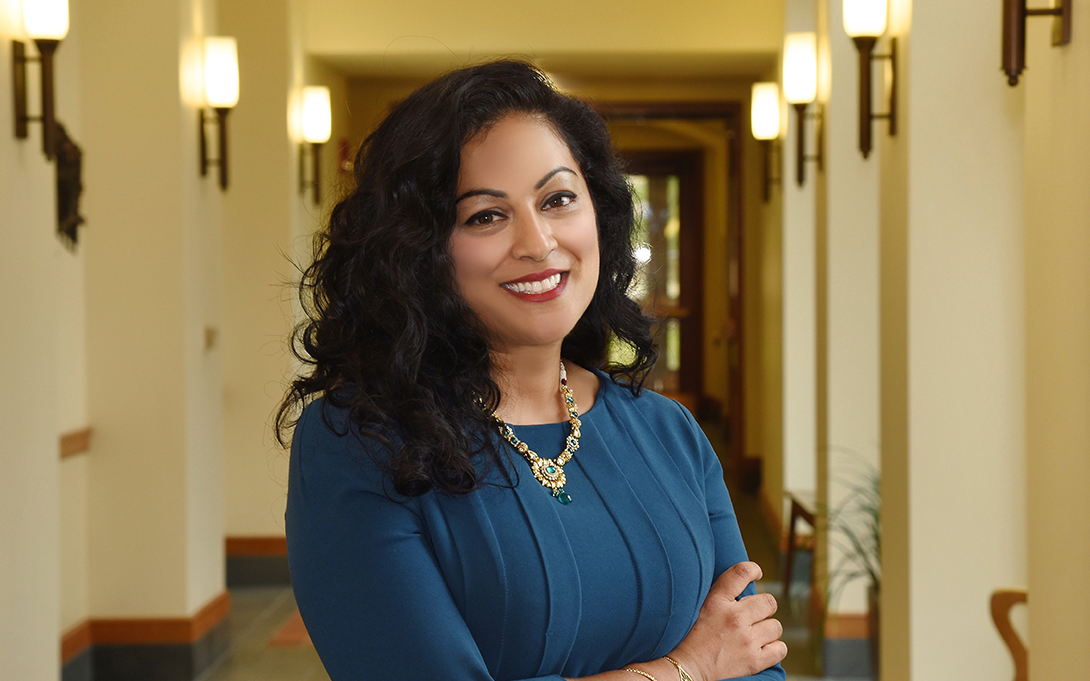
It’s becoming clear that more diagnostic testing is key for the U.S. to stop the spread of COVID-19, re-open the economy, and better manage the next epidemic. Shobita Parthasarathy, director of the Ford School of Public Policy's Science, Technology, and Public Policy program, believes we have something to learn from other countries’ responses.
Governmental responses differ from country to country based on a variety of factors, including domestic politics and public trust in both government and science. Through a recently awarded National Science Foundation Rapid Response Research grant (RAPID), Parthasarathy will compare the development, implementation, and governance of diagnostic testing in four countries: the U.S., the U.K., Singapore, and South Korea. She hopes her research will help inform the development of practices and policies for diagnostic testing now, and in future pandemics.
Parthasarathy is an expert in thinking about the role of knowledge and expertise in science, technology, and health policy. She looks at “Who do we believe and why? Who has the authority to make decisions? If they do have the authority but we don't trust them, then what do we do?”
Parthasarathy explains that in the United States, we pride ourselves on a decentralized approach to biomedical innovation, where academic scientists follow their research passions and biotech and pharmaceutical companies develop new products in a highly competitive environment that also values intellectual property. Meanwhile, the public sector has limited authority and federal government agencies--like the Centers for Disease Control--are often underfunded. We tend to believe that this approach produces faster and better technologies.
But that approach may not be the best to manage a public health crisis.
“There's been an enormous amount of news about how Singapore and South Korea have been successes when it comes to containing this novel coronavirus particularly because of their innovative public-private sector partnerships in developing diagnostic testing systems. There has been a lot of discussion about what the U.S. could potentially learn, how they managed it. They are seen at least right now as success stories. Meanwhile, the U.K.’s testing strategy, which has been very limited, has also been seen as a failure.” Parthasarathy said.
“In the U.S., we famously don't trust the government. Institutions and states and localities have taken into their own hands essentially governance of their populations when it comes to COVID-19. For example, whether to issue stay-at-home orders or lockdowns. And individual health care providers have to procure diagnostic testing for their patients.”
Parthasarathy’s comparative study will serve to:
Think through what optimal public-private cooperation should look like for diagnostic testing during emergencies like COVID-19. For example, some countries were able to bring stakeholders and players together immediately to work together on diagnostic testing, while the U.S. was not.
Determine how the U.S. can do a better job of learning from prior experiences. By assessing how prior pandemics shaped COVID-19 preparedness in other countries, it can provide clues to how the U.S. can better take lessons learned to adapt and improve policies and practices.
Identify testing strategies that do not reinforce or maintain racial or socioeconomic inequalities. Her preliminary research suggests that COVID-19 testing strategies in the U.S. and in other countries reflect existing inequalities. New strategies—that prioritize equity—can reverse that trend.
Parthasarthy says she hopes to gain a deeper scholarly understanding of the politics of science and technology, in particular, “whether and how particular kinds of values and politics reveal themselves in emergencies.” On the policy side, she anticipates a better understanding of political culture will have an immediate impact. “I'll be using that to think about how we might develop better science and technology policies—either to manage this crisis or the next one,” she concludes.
For a full interview with Parthasarathy in U-M News, click here.
Shobita Parthasarathy is a professor of public policy and faculty lead of the Ford School’s Science Technology and Public Policy research center. Her research focuses on the comparative and international politics and policy related to science and technology. She is interested in how to develop innovation, and innovation policy, to better achieve public interest and social justice goals. Much of her previous work has focused on the governance of emerging science and technology, particularly those that have uncertain environmental, social, ethical, political, and health implications. She is the author of multiple articles and two books: Building Genetic Medicine: Breast Cancer, Technology, and the Comparative Politics of Health Care (MIT Press 2007; paperback 2012); and Patent Politics: Life Forms, Markets, and the Public Interest in the United States and Europe (University of Chicago Press, 2017).
The National Science Foundation is encouraging researchers to apply for RAPID grant funds for non-medical, non-clinical-care quick-response research that can be used immediately to address the COVID-19 global challenge.
More news from the Ford School